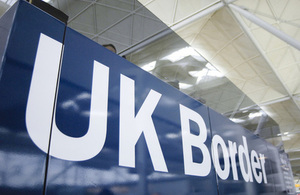Report finds Home Office struggles to delivery technology programmes at staggering cost to taxpayer
Parliament's Public Accounts Committee today published a report on the government's delivery of digital services at the UK border.
 Image credit: UK GovernmentYou can read the report online here or download the 20-page PDF file here.
Image credit: UK GovernmentYou can read the report online here or download the 20-page PDF file here.
The Home Office faces strong criticism from the Public Accounts Committee for presiding over a "litany of failure in nearly 20 years of non-delivery of digital border programmes."
The report notes that the 2003 e-borders programme was abandoned in 2011 at a cost of least £340 million plus £185 million spent on a legal case for cancelling the contract. The successor Digital Services at the Border programme was introduced in 2014 with a planned delivery date of March 2019, but the Committee notes this has been delayed and will not deliver until 2022.
The Public Accounts Committee key findings are as follows:
• The Home Office continues to struggle with delivery of technology programmes at staggering cost to the taxpayer.
• The Home Office has failed to identify, acknowledge and be transparent about problems within the Digital Services at the Border programme.
• The failure to deliver the Digital Services at the Border programme by March 2019 was caused by a lack of effective leadership, management and oversight.
• The Home Office has struggled to deliver the core technical components of the Digital Services at the Border programme.
• There is a clear risk that the Home Office will not be able to deliver the programme by the end of March 2022.
• The Home Office's ambitions for the border and its delivery of practical improvements for users depend upon it coordinating the implementation of the Digital Services at the Border programme with the delivery of several related projects.
Labour's Meg Hillier MP, Chair of the Committee, said: "Immigration and border security are among the biggest political issues of our time. It is incredible that the Home Office can have failed so badly, for so long, to deliver technology that is crucial to our national security objectives: crucial to protecting the public from terrorism, crime, illegal immigration and trafficking, and crucial to facilitating legitimate movement across the border.
"The Home Office has struggled to get to grips with the technical challenges, resetting the programme and changing the leadership repeatedly. And it is the tax payer hit by both the financial cost and the risks to our security."
BBC News quoted a Home Office spokesperson as saying in response to the report: "The Home Secretary agrees with the assessment made by the Public Accounts Committee of historical issues at the Home Office.
"Following the reset of the Digital Services at the Border programme in 2019, the rollout of the new Border Crossing system is on schedule to be completed by the end of June 2021, delivering increased efficiency and providing a better experience for travellers."